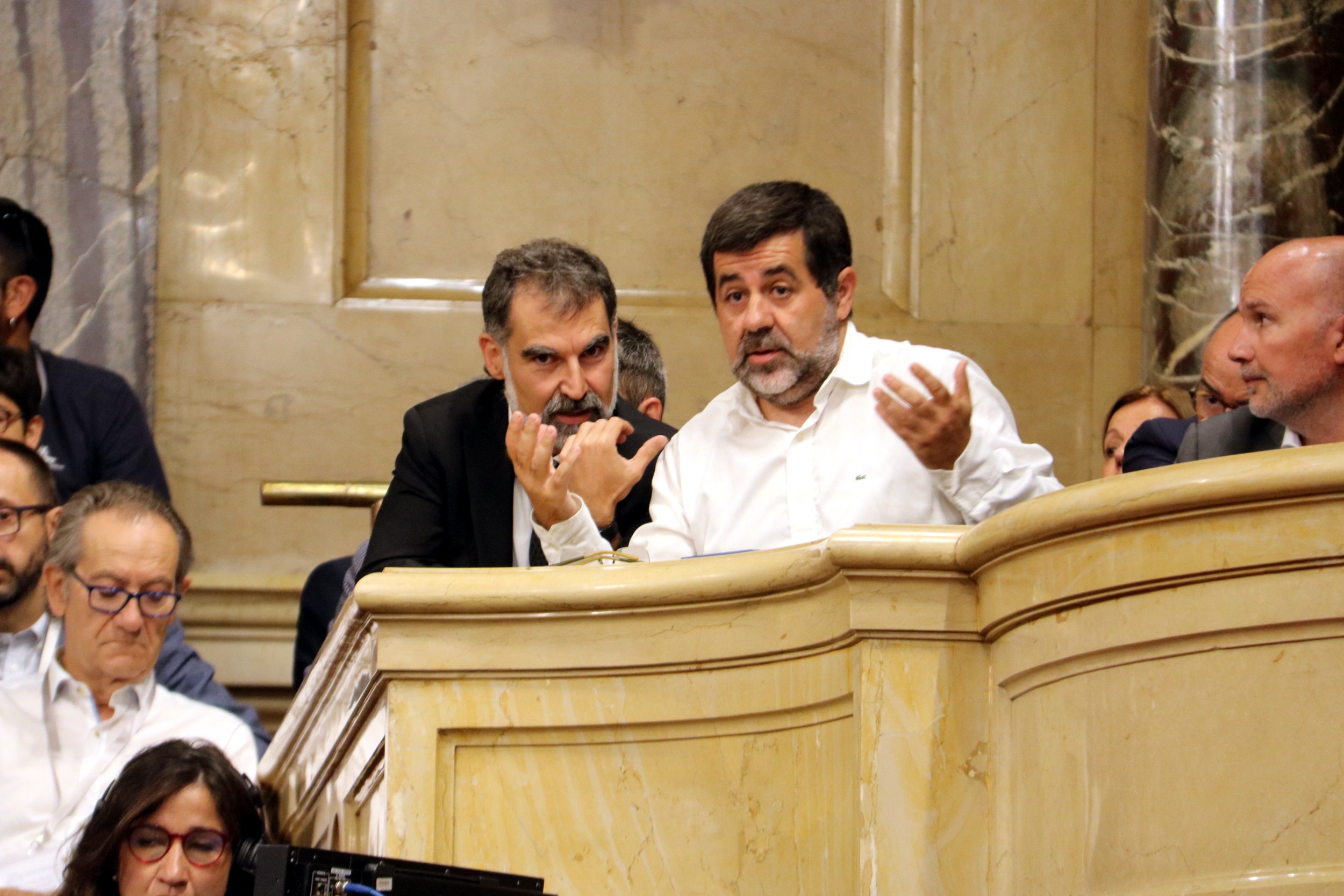The two judges on Spain's Constitutional Court who cast dissenting votes in favour of the appeal for constitutional protection lodged by Jordi Sànchez and Jordi Cuixart consider their sentences "disproportionate", because they are social leaders for whom the right to assembly must be guaranteed. The judges, Juan Antonio Xiol and María Luisa Balaguer, who have disagreed with the rest of the court on the response to all four of the Catalan pro-independence leaders whose appeals have been heard so far, repeated some of the points they made in the earlier appeals of Jordi Turull and Josep Rull, but added that in the case of the Jordis the judicial response was "severe" in the face of the exercise of the fundamental right to assembly and contained "an undesirable effect of discouragement" to the exercising of this right. They add that a different judgment could have been made, "more in line with an evolved interpretation and in line with that of the European Court of Human Rights."
The two judges claim that the "interference" in the right to assembly of the social leaders Cuixart and Sànchez - respective leaders in 2017 of Òmnium Cultural and the Catalan National Assembly, both punished with sentences of nine years in prison - is disproportionate, as the possibilities of participation and dialogue in the public debate of these people are “especially guaranteed” by the freedom of assembly. They add that the court's judgments recognize that the protests called by the two leaders took place peacefully, although they had the purpose of obstructing the effectiveness of the jurisdictional resolutions.
Above, the dissenting opinion by judges Xiol and Balaguer.
The judges assert that it has also been recognized that the considered goal being pursued by Cuixart and Sànchez was not to promote a social uprising that would enable the declaration of independence of Catalonia, but to pressure the Spanish government to negotiate a consultation.
In the text they defend that the appeal of the two social leaders should have been seen favourably due to the violation of their rights to personal liberty, ideological freedom and freedom of assembly.
The court majority dismisses the appeal
Despite these dissenting votes, the majority of the Constitutional Court dismissed the appeals of both men. In the case of Cuixart, they say that the sentence "does not respond to conduct that constitutes a legitimate exercise of the rights and freedoms of expression and assembly." They claim that the appellant, with his calls to the public, promoted a material opposition to the police's execution of the decisions of the Constitutional Court [declaring the referendum illegal] and other courts. "He has not been punished for mobilizing the public, for protesting against the banning of the referendum, or for the political proposal he defends, but rather for the simultaneous acceptance of and incitement to non-compliance with the Constitution, the law and the court orders issued to protect it," they say.
Thus, they see as “reasonable” the interpretation concluding that what had occurred was a crime of sedition. They argue that the protests of September 20th, 2017 constitute a "tumultuous uprising, given the hostile obstruction by the congregants." According to their argument, the response to the 1st October 2017 referendum involved the use of “sufficient” force to neutralize police officers who were legitimately trying to prevent the vote. They insist that the sentence imposed is not disproportionate, "in view of the seriousness of the judicial interests interfered with."
Above, the majority Constitutional Court opinion rejecting the appeal of Cuixart and Sànchez.
In the case of Jordi Sànchez, they also argue that he promoted material opposition to police action to enforce court orders and that this is what prompted his sentence, as he “clearly exceeded the limits of what can be considered legitimate exercise of the right of assembly to externalize the protest against or criticism of the action of the public powers". The majority vote of the court says that in Sànchez's conduct the message of vindication and protest can be "separated" from his acceptance and promotion of acts of impeding the judicial orders for which he has been criminally sanctioned.
In addition, the court rejects that the criminal trial and conviction seek to persecute or punish Jordi Cuixart's political position or that it has anything to do with his activism. On the contrary, they affirm that the Catalan independence movement "is not the object of persecution or discriminatory treatment of any kind, either by the Supreme Court nor by any other judicial body or public power of the state".
In the resolutions on both the Catalan leaders, the claim that there had been discrimination on the grounds of language is rejected, arguing that both understand Spanish and no interpreter was required. It also rejects that the right to an impartial judge was violated, assuring in the case of Cuixart that the friendship of the public prosecutor with the judges was not accredited, nor was an alleged relationship of the judges with the Spanish government, and the ruling does not uphold the appellants' criticisms of expressions used in the judgment or statements by the judges inside and outside the courtroom. In summary, the Constitutional Court majority claims that the procedural decisions questioned have a reasoned explanation and "constitute unimportant events".
In the positioning on Sànchez's appeal, the court rules that there was no pejorative treatment towards the defence because the facts analyzed are "manifestly insufficient" to conclude that there was such unfavourable treatment. According to the court, these were "minor events, incidents or minor procedural irregularities, in any case."
The Spanish Constitutional Court's rejection of the cases by the two pro-independence leaders means that, over three and a half years since they first entered prison, the trajectory for appealing their case within Spanish justice has now reached an end. They are thus now able to present appeals to the European Court of Human Rights in Strasbourg.

